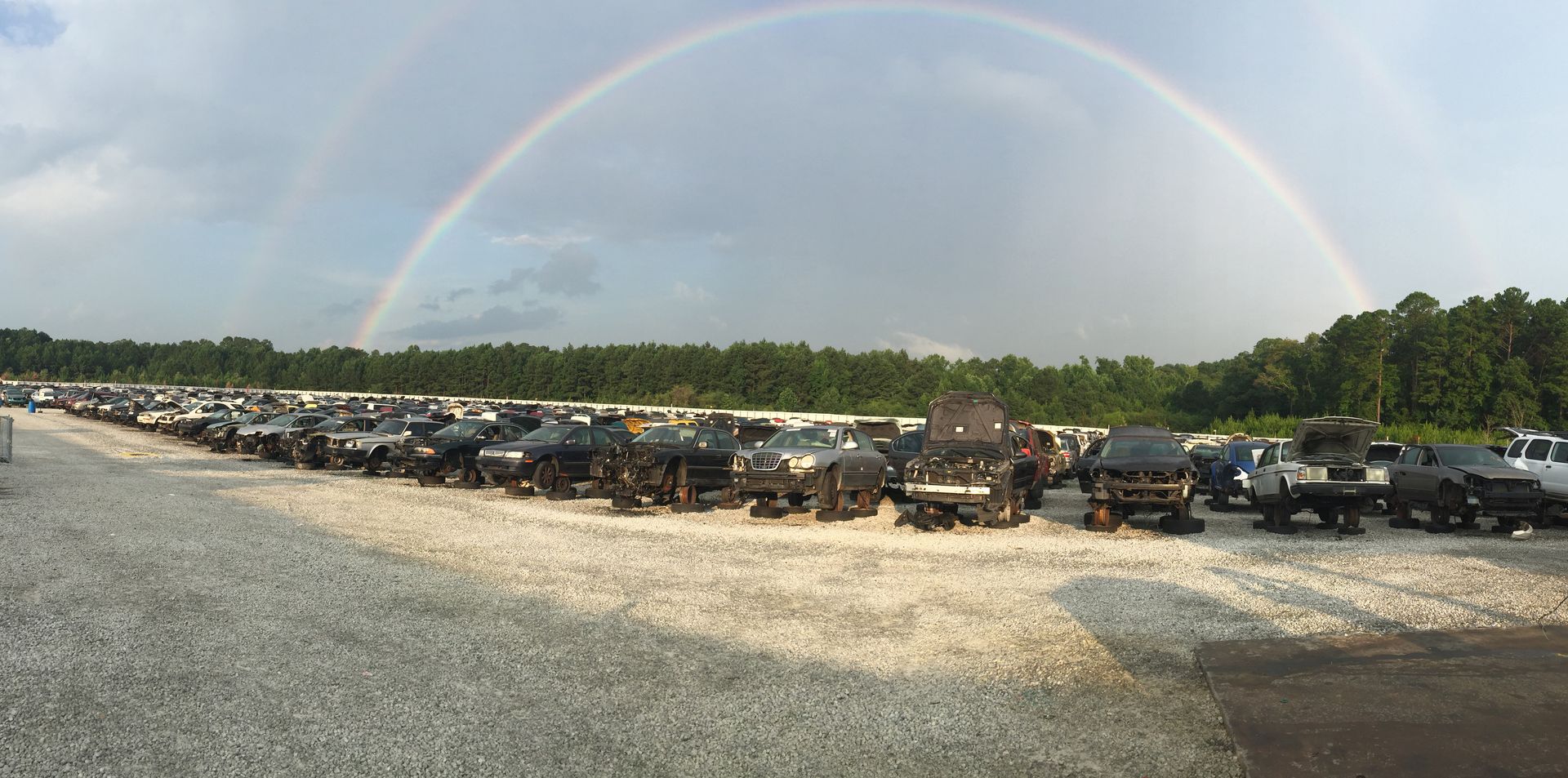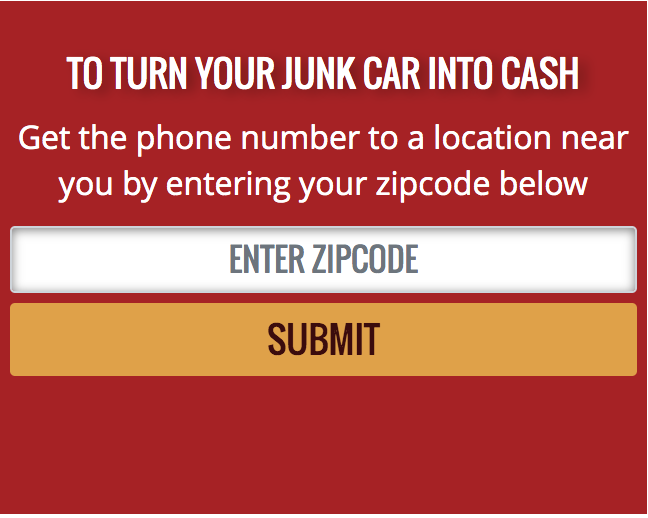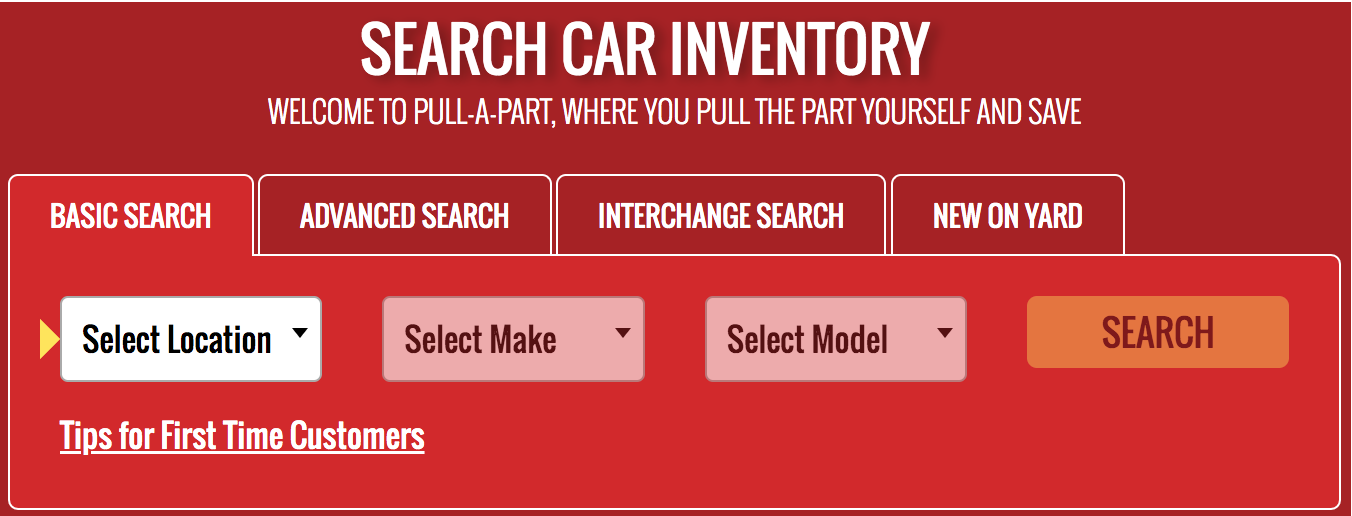How to Quickly Sell Your Junk Car: A Step-by-Step Guide
Find a Local Junkyard
ALABAMA
ARIZONA
COLORADO
FLORIDA
GEORGIA
INDIANA
KENTUCKY
LOUISIANA
MISSISSIPPI
NEW MEXICO
NORTH CAROLINA
OHIO
PENNSYLVANIA
SOUTH CAROLINA
TENNESSEE
TEXAS
Ready to turn that rusting clunker in your driveway into quick cash? With just a few straightforward steps, you can rapidly transform a neglected vehicle into extra money—no complicated hoops or endless back-and-forth. In this step-by-step guide, we’ll show you how to accurately determine your car’s value and condition, so you’ll be fully prepared when it’s time to connect with potential buyers. Plus, you’ll discover ways to weigh multiple offers and schedule convenient pickup. By following our simple process, you’ll eliminate guesswork and sidestep common roadblocks, all while securing the best deal. Whether your car is barely drivable or simply collecting dust, this guide will help you say goodbye to that unwanted ride—and hello to a swift and rewarding sale.
Summary
This step-by-step guide transforms complicated junk car sales into a hassle-free process, delivering fair value through transparent deals, verified buyers, and swift pickups.
- Assess your junk car’s condition and gather all essential paperwork.
- Research reputable local and online junk car buyers.
- Collect multiple quotes to secure your best possible offer.
- Negotiate with transparency and explore flexible options like free towing.
- Finalize the deal in writing and ensure payment details are clear.
- Schedule pickup or delivery to guarantee a smooth transaction.
Determine Your Junk Car's True Value and Condition: The Essential First Step
Determining your junk car’s value starts with a thorough evaluation of its condition, both inside and out. Begin by inspecting the exterior for signs of damage such as dents, rust, or missing parts. Make note of any significant tears or stains in the interior, as these details can inform prospective buyers about the vehicle’s overall state. Don’t forget to lift the hood and briefly check the engine or other mechanical components—even a car that won’t start can still have salvageable parts like the transmission or catalytic converter. By doing a quick, honest assessment, you’ll have a clearer sense of what your car is worth and which components might be most sought after by potential buyers.
Once you’ve sized up the physical aspects, focus on gathering all relevant documentation. Locate the car title, registration, and maintenance records, if available. These papers can offer evidence of ownership, accident history, and any repairs or upgrades performed over time. The more accurate and transparent you are about your car’s background, the easier it will be to establish credibility and get fair offers. Although junk car buyers typically anticipate a variety of conditions, providing clear records can speed negotiations and reduce the likelihood of disputes later on.
During this assessment phase, it also helps to identify any add-ons that might boost the vehicle’s value, such as aftermarket features or relatively new tires. If your car still holds drivable potential, consider factoring in the cost of minor repairs before you decide whether to sell as-is. Some sellers opt to replace low-cost parts or make small fixes to increase the car’s appeal. Keep in mind, though, that investing too heavily in a vehicle labelled as “junk” might not always deliver a high return. The key is striking a balance: gather essential paperwork, accurately note every detail, and be straightforward about your car’s worth. By doing so, you’ll set the stage for a smooth sale process—ensuring buyers know exactly what they’re getting and you can negotiate with confidence.
Find Reputable Junk Car Buyers: Where to Look and What to Expect
Finding the right place to sell your junk car often begins with checking local junkyards or scrapyards. These businesses have the advantage of proximity, potentially offering free towing or same-day pickup. Still, you’ll want to research their track record by browsing online reviews or asking around your community. A straightforward way to gauge a buyer’s reputation is to see how they handle question-and-answer sessions. Reputable yards are usually transparent about their rates, especially if they’re well-established in your area. If they seem evasive or their pricing strategies appear unclear, that’s a red flag.
For a wider audience and potentially higher offers, consider searching “junk car buyers near me” on reliable online platforms. Specialized websites focused on used and damaged cars can quickly connect you with multiple interested parties. Keep quality control in mind, though: check each buyer’s credentials or business license to ensure you’re dealing with a legitimate operator. Many online sites also host user-generated comments regarding payment timelines, professionalism, and service quality—these insights can guide you toward the best match for your needs.
Once you’ve identified a few promising candidates, inquire about any preferences they might have, such as cars with intact engines or specific model years. This information can help you tailor your offer to the buyer’s interests and potentially speed up the sale. Remember to compare both immediate quotes and the overall experience each buyer promises: a slightly lower offer might be worthwhile if the purchaser can guarantee fast pickup and quick payment. Ultimately, investing a little time in credential checks and buyer comparisons will help you enjoy a smoother transaction and earn a fair price for your junk car.
Requesting and Comparing Offers: Securing the Best Value for Your Junk Car
Gathering multiple quotes is a key strategy for anyone aiming to get top dollar for a junk car. By reaching out to different buyers, you can quickly compare offers and spot any lowball proposals. Start the process with a quick search online or a few phone calls to local junkyards, making sure each buyer knows all the essential details you’ve gathered—condition, documentation, and any existing damage. If your car still has salvageable components or valuable parts, emphasize these highlights to pique more interest. While it may take a bit of coordination, spending time upfront to collect competing bids often pays off once you settle on a deal.
Beyond simply comparing price points, factor in the buyer’s flexibility on towing and timing, as well as how they intend to pay. Some companies offer to pick up your car within hours and pay via check, while others might schedule a pickup later in the week but bring cash on the spot. Negotiation can be as simple as politely letting a buyer know you have another competitive quote on the table. Buyers eager for your business often respond with better offers or incentives, like expedited pickup or covering all paperwork costs. By approaching the process systematically and aiming for transparency in each conversation, you’ll land on an offer that meets your financial expectations without unnecessary delays or hidden fees.
Closing the Deal and Scheduling Pickup: Ensuring a Swift, Hassle-Free Finish
Finalizing your junk car sale begins with confirming the deal terms in writing. As soon as you agree on a price, verify that both you and the buyer are clear about the condition of the vehicle, payment method, and timeframe. Preparing all necessary documents is crucial—locating your title, signing any release forms, and retrieving certificates or past maintenance records can smooth out the transaction. Some buyers might provide digital forms you can sign using an online service, while others will require an in-person signature. Either way, having everything in order speeds up the process and helps build trust between you and the buyer.
Next, coordinate pickup or drop-off logistics. If the buyer offers free towing, confirm when they’ll arrive and whether they need any special instructions, like gate codes or space to maneuver a flatbed. Make sure you discuss payment details upfront: cash remains a popular choice due to its immediacy, but a certified check or secure electronic transfer can also be respectable options. Once you’ve handed over the keys and paperwork, double-check that you receive the exact payment amount agreed upon. Don’t drive off or allow the tower to leave until you’re fully satisfied with the transaction. By staying organized and proactive, you’ll ensure a quick payout and a hassle-free finish—all while clearing space in your driveway and pocketing some extra cash in the process.
Start your hassle-free junk car sale now—request a quick evaluation and cash offer!
By following these practical steps, you can quickly transform your unwanted vehicle into cash without unnecessary hassles or delays. You’ve learned the importance of accurately assessing your car’s condition, seeking reputable buyers, and requesting multiple offers to optimize your payout. We’ve also covered proven negotiation tactics, so you know exactly how to secure a fair price without sacrificing convenience or speed. Finally, understanding how to finalize paperwork and schedule a smooth pickup means you can part ways with your junk car on your own terms. Equipped with this knowledge, you’re ready to take confident action—from that first quote request to the final handshake—ensuring you get the best possible deal while clearing space and pocketing the extra money you deserve.





